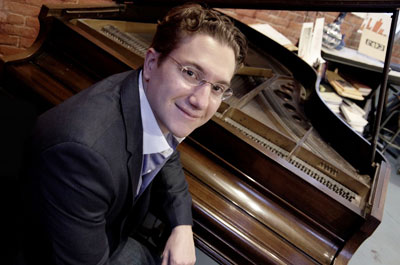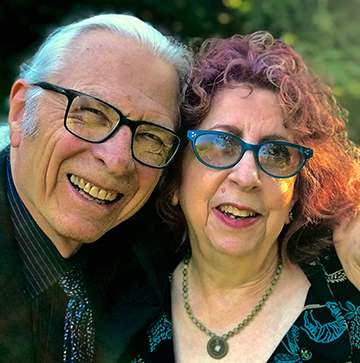The Unfettered Critic – August 2014
We were taken aback last summer when a friend grumbled that George Gershwin’s l925 composition “Concerto in F” shouldn’t have been on a Britt conductor’s playlist. “The piece is one of our favorites,” we countered. “The guest pianist was exceptional and the orchestra delivered a brilliant performance.”
“It’s not classical,” he scoffed. “This was supposed to be a classical concert.”
The conversation made us wonder: How does one categorize “classical music” today? Is it just music that’s “old?” And if so, how old does it have to be? As you may suspect, the answer is more complicated than that.
There’s actually a period in history referred to in musical circles as the Classical era, from 1730 to 1820, when such notables as Joseph Haydn, Wolfgang Amadeus Mozart and Ludwig van Beethoven were peaking. Is that the extent of “classical music?” If so, are we to ignore music from a hundred or so years prior to that, in the Baroque era, when the likes of Johann Sebastian Bach, George Frederic Handel, and Antonio Vivaldi were making sweet music? How about the years following the Classical era, from approximately 1815 to 1910, known as the Romantic era? Composers from that latter time, like Frederick Chopin and Franz Schubert, deserve a nod.
Musicologists connect those eras by calling the whole shebang the “common practice period.” We suspect the best way to keep audiences away from a musical event would be to call it a “Common Practice Concert.” Which probably is why all music from that extended period became referred to as “classical.” But given that, what about music written since l910? Say, for example, Gershwin’s “Concerto in F” (you knew we’d get back there)? Or the music of contemporary composers such as John Cage and Philip Glass? Do picnickers on Britt Hill feel that such modern stuff belongs on the “classical” list?
Well, we’ll soon find out, because Teddy Abrams, the new conductor of the Britt Orchestra, subscribes to the broader view of all things classical. Under his baton, audiences will hear familiar greats and more. He’ll kick off the Festival on August 1 with Stravinsky’s magical “Firebird Suite” and Beethoven’s beloved “Symphony No. 5.” That same night we’ll hear a piece composed by Abrams himself—a piece so fresh that, as we write this, he hasn’t yet given it a name. Maestro Abrams has written it to commemorate his first season with the Britt, so it hardly fits into the “common practice period” definition, yet we suspect we’ll accept it as “classical music.” The following night, August 2, Festival attendees will experience a more traditional concert with pieces by Rimsky-Korsakov, Prokofiev, and Tchaikovsky.
On August 8, prepare for more excursions into the new era. Brahms Symphony No. 1 will serve as a highlight of the show, but first, the Britt orchestra will take on “Walking,” a lively 2014 composition by Sebastian Chang, to be followed by longtime Britt favorite Béla Fleck with “The Impostor,” a concerto Fleck composed for banjo and orchestra. August 9 promises a more traditional evening, with two works by Sibelius, “Finlandia” and “Violin Concerto,” and Dvorak’s “Symphony No. 9.”
August 15 promises the most contemporary evening of the season, with John Kander’s l975 Overture to “Chicago,” Kurt Weill’s l933 “The Seven Deadly Sins” (to be sung by the stunning Storm Large), Gershwin’s “Rhapsody in Blue” (1924), and Aaron Copland’s Four Dance Episodes from “Rodeo” (1942), August 16 admittedly won’t adhere to the classical genre. It’s Pops Night, with Time for Three romping from Bach to the Beatles. Don’t forget, lawn tickets for that night are five bucks!
Last but not least, the Festival’s closing night is guaranteed to touch on all the classically classic classiness: Wagner (“Overture to The Flying Duchman”), Weber (“The Three Pintos”) Bernstein (“Prelude, Fugue and Riffs”—Yes, it’s 20th century, but it’s BERNSTEIN!) and Mahler (“Symphony No. 1”).
So welcome to Britt’s new classical season. Be prepared to have your musical horizons expanded. But don’t worry: it won’t hurt a bit.

 Paula and Terry identify as writers, with an ever-increasing number of published works to support the supposition. They live a primarily pastoral life in the enchanted town of Jacksonville.
Paula and Terry identify as writers, with an ever-increasing number of published works to support the supposition. They live a primarily pastoral life in the enchanted town of Jacksonville.